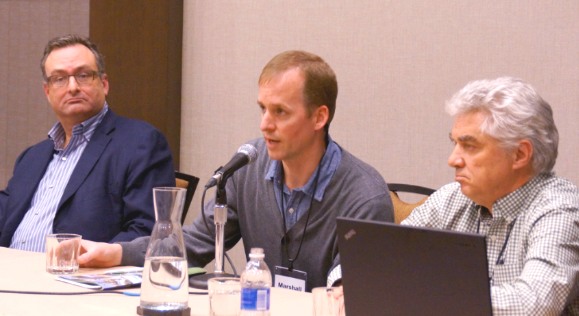Tag
#ahcj14
-
•
Sullivan, autobiography recognized with NAACP Image Award
Louis W. Sullivan, who spoke to Health Journalism 2014 attendees about his just-released autobiography, has won an NAACP Image Award…

-
•
Think about the words you use when covering suicide #ahcj14
Reporters need to think carefully about the language they use when reporting on suicide, a panel of experts urged during…

-
For freelancers, ‘Contracts 101’ was important session at #ahcj14
Almost every freelancer has a horror story or two about contract negotiations gone awry. To help freelancers avoid the most…

-
•
New models bridge the gap in health care news #ahcj14
Necessity has become the mother of innovative business models for local news. It’s no secret that vanishing news outlets and…

-
•
Getting the dirt on the allergy epidemic #ahcj14
Are there more people with allergies, allergic responses, asthma and eczema than in years past? Is the environment the blame?…

-
•
Concerns over ‘fracking’ prompt research into health effects, occupational hazards #ahcj14
Although 15 million Americans are now living less than a mile from natural gas wells, the research to evaluate any…

-
Researchers ‘owe’ the public information about financial ties #ahcj14
When writing about medical studies, reporters should always ask researchers about any financial relationships with drug companies or device manufacturers.…

-
•
Journalists high on health journalism for AHCJ’s annual conference #ahcj14
Journalists from all corners of the U.S. and some other countries gathered in the Mile-High City last week to learn…

-
•
Offit challenges reporters to avoid false balance #ahcj14
Paul Offit, M.D., has had it with the journalistic canard of false balance as a reflexive stand-in for objectivity –…


